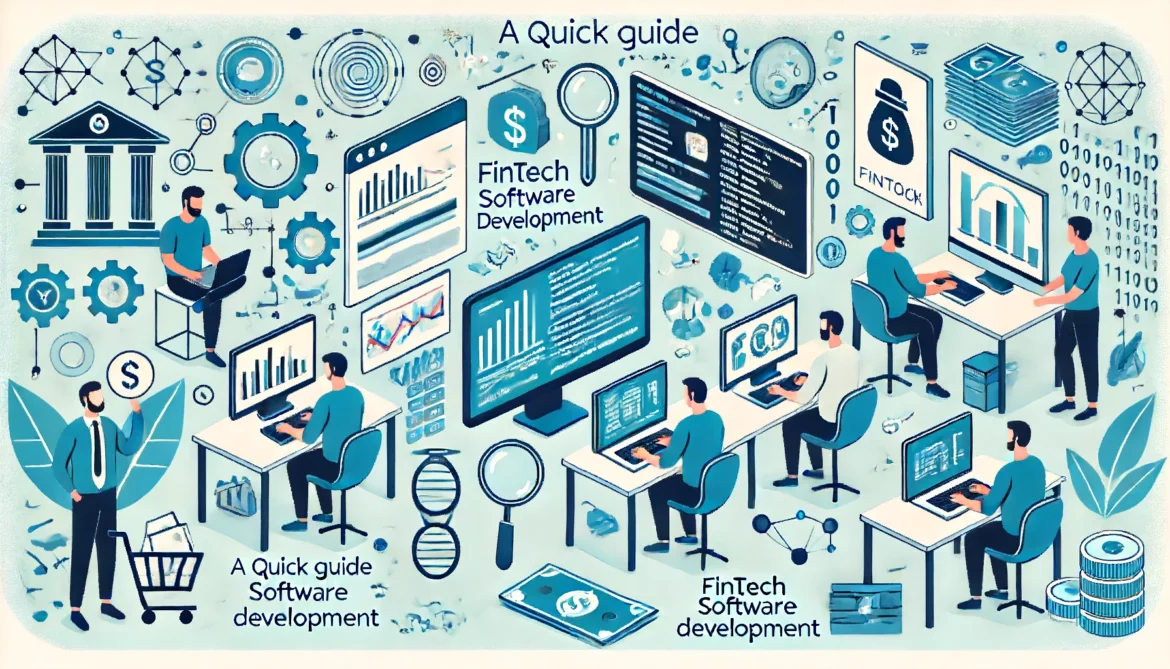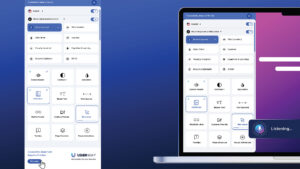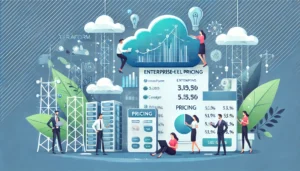Table of Contents
The IT industry is one of the biggest proponents of innovation. Combine it with another topical sphere—finance, and you’ve got one of the most promising niches out there, fintech.
With the advancement of the market, niche expert companies like Kindgeek have started to offer more and more relevant solutions. Services like fintech software development on demand become more popular. And demand is at an all-time high, indeed. But what is “fintech,” specifically?
Outside of the general knowledge that yes, it is a niche that married finance and tech development into one. But how does it work in practice? What are the examples of its implementation in business?
What does fintech entail? What software is available for custom development? All of that and some more, in today’s article. So let’s take a closer look at this industry.
A Few Words About Fintech
Fintech stands for financail technology. This area of tech focuses on creating innovative, tech-driven solutions for the financial sphere. Fintech at its core has a goal to enhance and automate the traditional processes in finance. With the use of technological innovation, fintech strives to improve financial activity.
What does fintech include specifically? There’s plenty to account for, especially with the rapid evolvement of the IT sphere through the past decade and the last years specifically. Fintech includes the development of software for mobile payment and online banking.
This area includes the integration of such technologies, as blockchain. With the rise in popularity of digital currencies over the past months, it’s to no one’s surprise that the development of corresponding software also has risen in demand. In 2023, the fintech industry was already worth over $226 billion.
We can highlight a few goals fintech strives to achieve when it comes to financial operations:
- streamline the process;
- improve the efficiency;
- make it more accessible;
- expand on personalized services.
The first thing that fintech brought into our daily lives is an opportunity to perform a whole variety of transactions online. Before mobile banking, you wouldn’t do without a trip to the bank, if you wanted to get any of your financial operations sorted. Now, you’re just a few clicks away on your smartphone to send money, receive payments, and much more.
The mass development of fintech apps and software made financial operations more convenient. Imagine going on an hour trip, because you need to transfer money to a friend you owe a few hundred bucks. And that would be true for any financial operation you need to be done.
With fintech software, that is no longer necessary. A dedicated online platform will solve your problem. All you need is your details, a laptop or a smartphone, and an internet connection.
Fintech breached the gap in Inclusivity as well. Unlike formal banking systems, a mobile app nowadays is accessible to virtually anyone who has a phone—and that’s a lot of people from a whole variety of backgrounds and economic classes.
In the past, traditional banks and their services could be open to certain people, but not within reach if they lack a certain status, knowledge, or experience with. Fintech helps to close that gap and brings financial operations to a much more diverse group of people.
Recently, artificial intelligence and machine learning started making huge waves throughout all things digital. Both AI and ML have proven to be incredibly useful for data analysis in the fintech industry.
Using such tools helps with gathering more relevant and accurate information within the financial space, and subsequently—improves the decision-making process for both professionals and regular people.
Technology helps with risk assessment, fraud detection, and personalized recommendations. The possibilities that the development of financial software opened up are vast. Even more importantly, such innovative solutions are scalable and accessible to any business with a need and a budget to develop their own.
What Type of Fintech Software Is Up For Development?
Fintech is first and foremost opt for creating innovative financial services. This includes designing, building, and maintaining each program. Any platform can come in various forms too: software, an app, a website, or a SaaS product. There are professional development companies like Kindgeek easily available on the market, should you decide your business needs one of your one.
Generally, there are several types of software development in fintech:
- mobile app;
- online banking platform;
- blockchain and digital currency.
Each of them can prove to increase the efficiency of a company. Only the digital asset market is expected to show a revenue growth of about 17% in 2025, which is nothing to sneeze at.
Pros and Cons of Custom Fintech Software
Of course, as with any other software, developing a custom fintech platform has its ups and downs. Let’s take a closer look at both.
The advantages of developing your own software:
- increased efficiency;
- improved accessibility;
- boundless scalability.
The pros of having a custom platform are quite straightforward. A platform relevant to your specific business operations will definitely increase the efficiency of those. Not to mention how it will improve accessibility for the users, that will want to use your services. It’s much easier to deliver through a dedicated fintech app. Lastly, the scalability of such software is infinite. There’s plenty of potential to grow alongside the development of your company.
The disadvantages of building a custom fintech platform for your business:
- technology dependence;
- market saturation;
- security concerns.
Generally speaking, the disadvantages shouldn’t discourage you, if you have a clear goal in mind. Just like with any project, some obstacles might complicate the situation. It’s important to account for those to be prepared to react responsively. However, a team of professionals you will need to employ to create such software should be able to account for any risks during the development.
Final Thoughts
Once you settle on developing a custom fintech software, it’s a matter of connecting with a reliable partner like Kindgeek, discussing your ideas, and delving into this venture. As with any other project, there are pros and cons to developing your own platform. But the fintech industry is growing, innovative, and has plenty of potential to explore.









